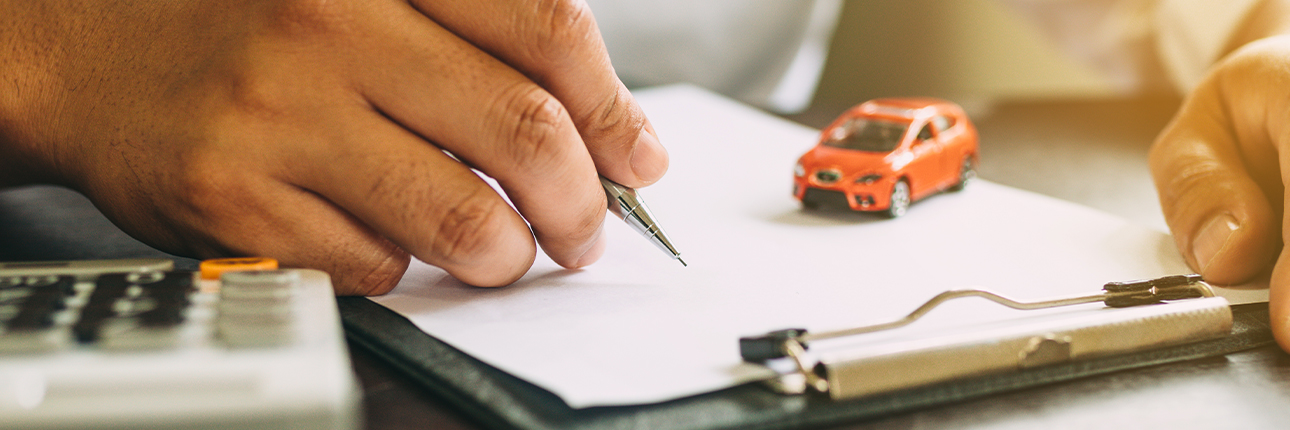We use cookies to make your experience better. To comply with the new e-Privacy directive, we need to ask for your consent to set the cookies. Learn more.


Car Finance: Your Questions Answered
With a number of finance options now available for those buying a used car, understanding the different types of finance options on offer, the various lenders, and what suits you best can often be confusing.
We’ve been taking note of the finance questions that come our way, and answered them all for you here:
What is car finance?
Car finance is a method of purchasing a vehicle through a financial agreement or loan, rather than paying the full price upfront. It’s a popular option for many people who want to buy a car but may not have the immediate funds to cover the entire cost. Car finance allows individuals to spread the cost of the vehicle over a period of time, typically through monthly payments.
What are the different types of car finance?
There are several options when it comes to car finance, but the two most popular types of car finance are Hire Purchase (HP) and Personal Contract Purchase (PCP).
What is PCP car finance?
PCP allows you to choose a vehicle deposit that works for you; with a larger deposit resulting in lower monthly instalments. On top of this, you can decide on the terms of your agreement, including your average annual mileage. Your mileage not only determines how much money you pay each month but impacts the optional purchase payment at the end of your contract.
When your PCP is up, you can choose to either hand the car back (the car must be in good condition and within the agreed mileage), part exchange it for another car on a new agreement, or choose to pay the final repayment to own the car outright.
What is HP car finance?
Hire Purchase plans are a straightforward and affordable route to vehicle ownership, with the customer working their way up to full ownership through a fixed term of monthly payments. It’s simple, once the final instalment has been paid, you own the car completely. Similar to PCP finance, HP allows you to choose a vehicle deposit that suits your situation, and allows you to decide on the terms of the agreement by agreeing on the annual mileage.
Another advantage to choosing HP is not having to worry about varying interest rates. Interest rates on Hire Purchases are fixed for the duration of your agreement, regardless of any changes the Bank of England may announce, giving you that financial peace of mind.
Do I need to pay a deposit to get car finance?
Whether or not you need to pay a deposit to kick-start your car finance deal depends on the type of car finance you opt for and the terms of the lender’s policy. Most of the time, the buyer pays a deposit to reduce the monthly payments on the car, but this isn’t always mandatory. Here's how deposits work for the two most popular types of car finance, PCP and HP.
For Personal Contract Purchase (PCP) agreements, a deposit is almost always required. The amount can vary, but the value of the deposit often results in more favourable monthly payments and terms.
For Hire Purchase (HP) agreements, a deposit is typically required, and is usually valued at around 10% of the car's purchase price, but the exact amount can vary. Similar to PCP agreements, larger deposits normally result in more favourable terms, such as cheaper monthly repayments.
What is APR?
Car Finance APR (Annual Percentage Rate) is an important part of car finance that represents the annual cost of borrowing money to finance the purchase of a car. The APR includes the interest rate charged by the lender, as well as any additional fees or finance charges associated with the loan.
When you take out a car loan or enter into a car finance agreement, the lender will charge you interest on the amount you borrowed, the APR expresses this interest rate as an annual percentage. For example, if you borrow £10,000 for a car with a car finance APR of 5%, you would pay £500 in interest over the course of one year (5% of £10,000).
Will car finance affect my mortgage?
Car finance can potentially impact your mortgage application or the terms of your mortgage, but the extent of the impact will depend on various factors, these include:
Debt-to-Income Ratio: When you apply for a mortgage, lenders consider your debt-to-income ratio (DTI), which compares your total monthly debt payments (including car finance payments) to your gross monthly income. If you have significant car finance payments, it could increase your DTI, making it harder to qualify for a mortgage or potentially leading to a lower mortgage amount.
Credit Score: Taking on car finance involves a credit check, and having new credit inquiries can temporarily lower your credit score. A lower credit score could affect your ability to secure a mortgage, or result in a less favourable mortgage deal.
Monthly Obligations: Car finance payments are considered a monthly financial obligation. Lenders assess your ability to handle mortgage payments by reviewing your existing monthly commitments, including car finance payments. Higher monthly obligations might reduce the mortgage amount you qualify for.
Can I get car finance if I have bad credit?
Yes, it is possible to qualify for car finance even if you have bad credit, but the options available to you may be more limited compared to someone with a good credit history. Having bad credit can make it more challenging to qualify for car finance, so here are some options for individuals with bad credit:
Subprime Lenders: Some lenders specialise in providing car finance to individuals with bad credit, these are often referred to as subprime lenders. While the interest rates may be higher, they may be more willing to work with borrowers with poor credit histories.
Increased Down Payment: Making a larger down payment can demonstrate your commitment to the loan and may help you secure car finance even with bad credit. A higher down payment can also reduce the overall amount you need to borrow, making the loan more manageable.
Co-Signer: Having a co-signer with a strong credit history can improve your chances of getting approved for car finance. A co-signer agrees to be responsible for the loan if you default, which reduces the lender's risk and may lead to more favourable loan terms.
